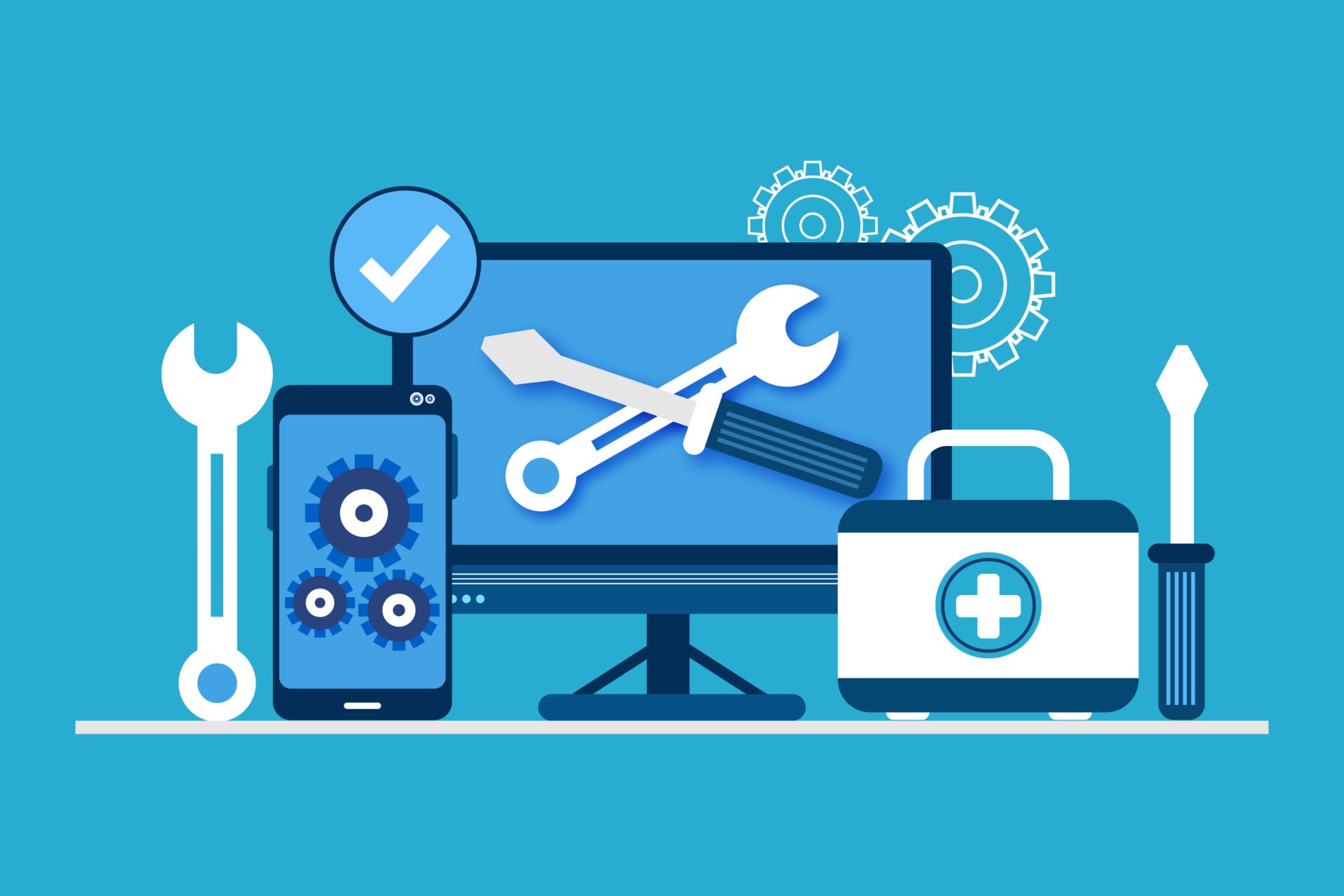American democracy has a lot of moving parts. Some of those parts don’t seem to be moving as intended—at least not toward an equitably representative society. Sometimes, the whole mechanism seems to be breaking down.
But there is hope in a malfunctioning gear. Its constant creaking alerts us to a problem and helps pinpoint the source. We can remove rust, lubricate, or replace a part that’s broken. We can fix the wiring, clear the memory cache, replace the batteries.
We own this democracy, and it’s our responsibility to keep it functioning.
Problem #1. American democracy was not originally designed to work for everyone.
Democracy, by its very definition, is supposed to work for everyone. The original American version—which, admittedly, was a proof-of-concept rather than a full-fledged product—excluded entire swaths of people and granted more value to some votes than others. We’ve made efforts toward fixing these problems (most notably through amendments and the Voting Rights Act), but the maintenance must be ongoing.
“Since the 2008 election, 19 states across the country have passed 27 measures to curtail the right to vote for many Americans,” said Douglas Wood, director of the Institute’s Criminal Justice Reform Initiative. These laws have disproportionately affected people of color, individuals with disabilities, the elderly, students, and those formerly incarcerated. “In 2013, the Supreme Court struck down a key provision of the Voting Rights Act allowing nine states, primarily in the South, to modify or change their election laws without prior federal approval.”
Legal barriers are foundationally problematic, but physical barriers also have a tremendous effect. In the fall of 2020, some Americans waited twelve hours in early voting lines. Even if the barrier of voter registration is overcome, the burden of in-person voting can be onerous to those with work or care duties, limited mobility, or understaffed polling places.
Problem #2: It only works in two gears.
There are arguments older than the constitution itself about the role of political parties in American democracy, but electoral politics and political parties have only strengthened each other over time. In the modern era, this has led to polarizing primaries and difficulties building coalitions. The result is a democracy that lurches to the right, and then to the left, and then back again, and that seems to have trouble finding a path forward.
“I actually favor the term ‘constructive partisanship’ rather than bipartisanship,” said Dan Glickman, a former congressman and executive director of the Institute’s Congressional Program. “Leadership is key—leaders who understand that we will never eliminate the partisanship in our political system, nor should we, but that partisanship should be constructive rather than destructive.”
Problem #3: It’s susceptible to user error.
“An informed citizenry is the bulwark of a democracy,” said Thomas Jefferson, perhaps apocryphally. When it comes to civic education, Glickman favors requiring every US high school student to take and pass the same examination required of new American citizens. But once we all (ideally) understand how democracy is supposed to work, we must roughly agree to the facts of the world that we’re operating in—and that’s getting harder than ever. While rumor and lambast and hatred and a thousand -isms have been gumming up the works since the country’s founding, modern technology has made the problem of misinformation even more difficult.
“Because the internet allows anybody to create content and share it widely, there are fewer controls over accuracy,” says a report from the Institute and the Knight Commission on Trust, Media and Democracy. “Misinformation and disinformation are spreading virally, sometimes by innocent sharing, sometimes with malice.”
This phenomenon—ironically referred to as “the democratization of news”—has undermined traditional and trustworthy media sources and their revenue streams. Funding quality journalism, particularly in under-covered communities like rural areas, is critical to a free society.
Problem #4: It’s vulnerable to sabotage.
In a recent discussion hosted by the Institute’s Tech Policy Hub, panelists noted that tens of millions of Americans view political advertisements on social media that disguise themselves as unpaid content—so-called ‘dark ads.’ NYU researchers have discovered that more than half of Facebook pages from May 2018 until June 2019 that displayed US political ads concealed the identities of their backers.
And it’s not just random disinformation—it’s targeted and directly disruptive. “Online disinformation tactics targeting Black and Latino communities have increased since the 2016 election,” said Dominique Harrison of Aspen Digital. “In this election, manipulative content coming from Russia, Romania, China, and Iran are urging these communities not to vote, inciting racial tensions, and spreading false information about mail-in voting. This is a civil rights issue that must be addressed.”
Problem #5. There is no pause button.
We’re used to presidential elections being called right away, but this one may not be. COVID-19 and the widespread use of mail-in voting mean that millions of ballots may be uncounted at the end of election day as not every state starts counting early. There’s a deadline to complete counting by November 17, though there are built-in extensions before the actual meeting of the Electoral College on December 14. Those votes arrive at the House of Representatives on January 6 for the formal count. And then it should all be over.
“We should prepare ourselves and should prepare the public for a long counting period, but it is possible that we will know who won and who lost soon after election night,” said Nate Persily of Stanford Law at a recent Aspen Digital event. But he warns us to expect challenges in the courts, and possibly other disruptions to the normal process. “Depending on the nature of the dispute, the litigation will take different forms whether it is a dispute over absentee ballots for provisional ballots or recounts. We should not be surprised if there’s litigation over polling place dysfunction or, potentially, violence.”
The gears of democracy need regularly scheduled maintenance.
Machines get old and need refurbishing. Parts need replacing every once in a while, and adjustments need to be made. The events surrounding this century’s elections should remind us to commit to regularly scheduled maintenance.
America deserves credit for building this machine in the first place—this noble device that has allowed generations upon generations to have a say in the way their government is run, and that continues to welcome more voices each generation. With a few tweaks, and perhaps a replacement part or two, we can keep these gears running for centuries to come.


